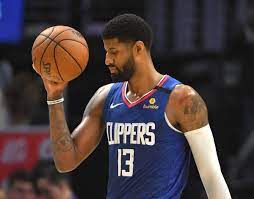“ I underestimated mental health, honestly. I had anxiety, a little bit of depression from being locked in here. I just wasn’t here. I was checked out.” Paul George
 Paul George did not look like himself for a week before the game and his performance during the game was not good. While the world thought it was just poor play on the basketball court, it was depression.
Paul George did not look like himself for a week before the game and his performance during the game was not good. While the world thought it was just poor play on the basketball court, it was depression.
What is Depression?
Depression is a serious yet common form of mental illness that can affect anyone at any age, even athletes.
Depression impacts the way you think, feel and act.
The athletes suffering from depression may feel sad and lose interest in activities they once enjoyed. If the issues or situations are not addressed timely, it will make day-to-day activities challenging, interfere with practice and cause poor performance on the court.
How Depression Affect Athletes?
Depression is as common in athletes as in the general population. It is crucial to understand and recognize the signs and help the athlete return to mental wellness.
Some of the symptoms of depression that may hinder the athletes’ performance are:
• Excessive fear
• Excessive worry
• Low self-esteem
• Impaired concentration
• Changes in sleep
• Changes in appetite
• Loss of interest in sports
• Sadness
o For a more comprehensive list, feel free to reach out to me.
Statistics – Athletes and Depression
• A study was conducted in 2019 that concluded about 21% of male athletes (students) and 28% of female athletes (students) reported that they “felt depressed” in one year period. Moreover, 12% of college students, including athletes, endorsed that they have “seriously considered suicide” in the past 12 months. (Egan, 2019)
• Another study shows that depression comes among the top three mental health problems in student-athletes, along with anxiety and stress. (Hilliard, 2020)
This clearly shows that depression affects athletes significantly and needs immediate attention.
Athletes Struggling with Depression
Here are a few professional athletes who struggle with depression.
• In 2012, Amanda Beard, an Olympic gold medal winner in swimming, talked about her struggle with depression in her memoir “In The Water, They Can’t See You Cry.” She revealed that she struggled with drug abuse, bulimia, and anorexia.
• Ricky Williams, an Ex-NFL athlete, faced depression at the age of 23. He was diagnosed with social anxiety disorder and depression.
• Delonte West, an ex-basketball player, was suffering from depression. In 2008, he was diagnosed with bipolar disorder.
• Imani Boyette, another professional basketball player, spent a big part of his life battling depression.
Why Athletes are Hesitant to Seek Help
Athletes are usually reluctant and uncomfortable seeking help from a professional because of various reasons, such as:
• It is a perception that it is a sign of weakness
• There is a lack of knowledge of the benefits
• Players fear it will affect their ability to continue on the team
It is the responsibility of parents, coaches, and professionals to create a sustainable and healthy environment for athletes going through depression.
In this way, the players will feel comfortable seeking help and speaking about their mental condition without fearing adverse outcomes for their athletic life.
Strategies To Overcome Depression
If you are suffering from depression, a few lifestyle changes will help.
• Communicate and spend your time with friends and family
• Exercises daily
• Meditate
• Question Your thoughts
• Readjust your goals
• Understand your triggers
• Get enough sleep
If you are struggling with mental health issues or want strategies to deal with depression, Let’s Connect at drdcoffey.com/mentalhealth.
